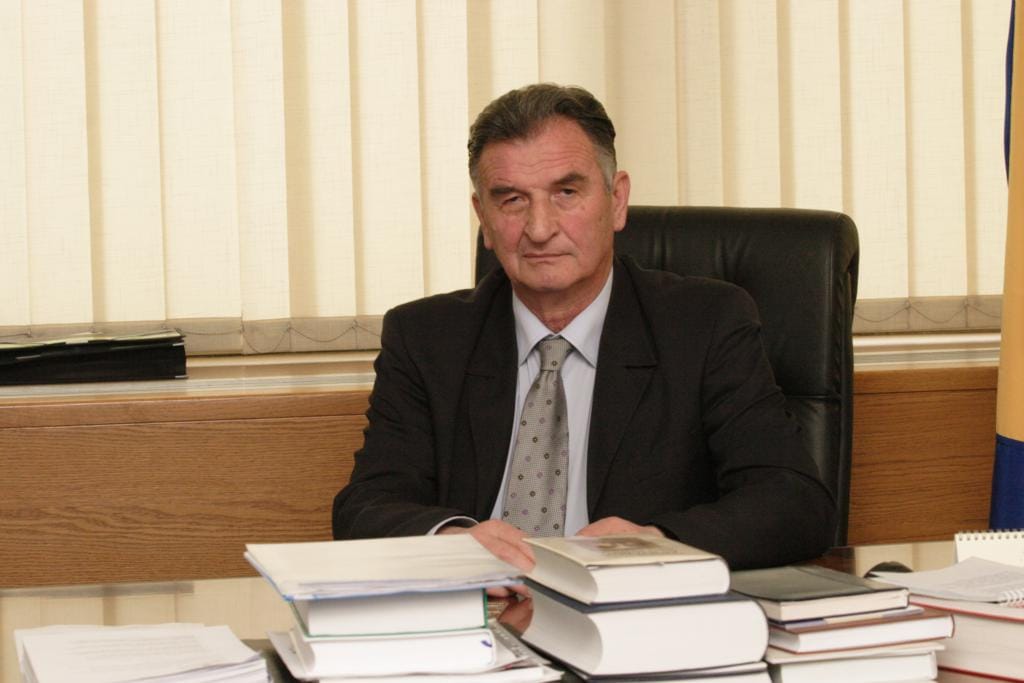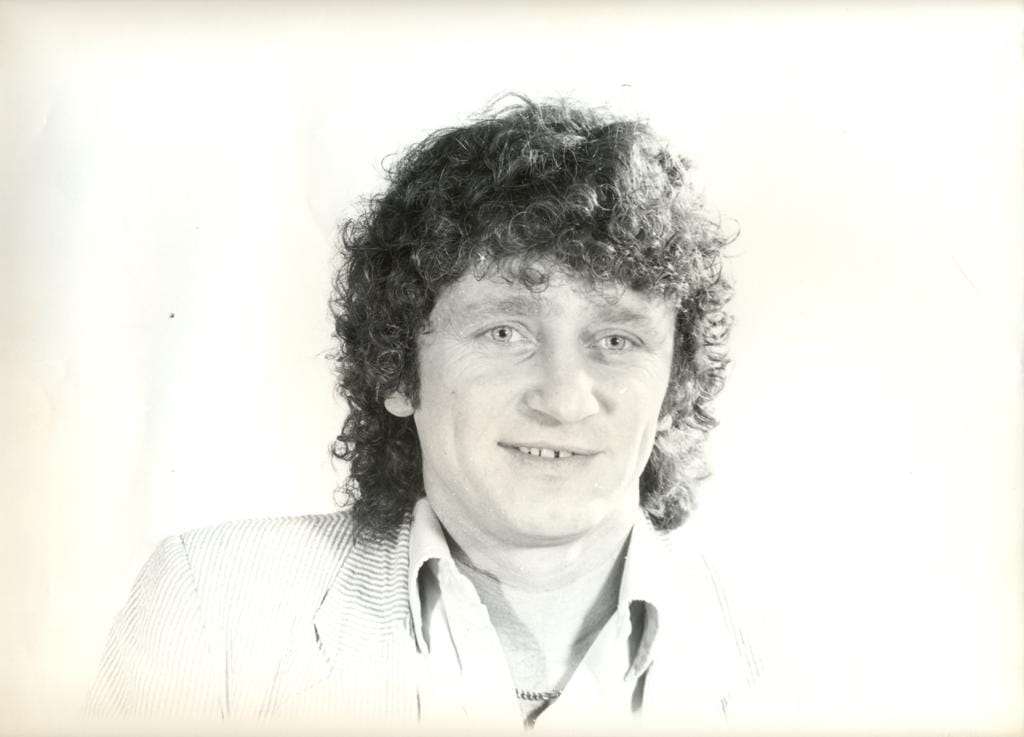The International Criminal Court for the former Yugoslavia was set up in The Hague in 1993, and a decade later, the state court of Bosnia and Herzegovina created a special chamber to handle still-remaining cases of war crimes.
But during the late 1990s, at least six — but maybe more — accused war criminals from the Balkans including Bosnia and Herzegovina were tried in courts around Europe.
Refik Sarić was sentenced to eight years in prison in Denmark. Austria acquitted Duško Cvjetković, and Germany tried and delivered verdicts against four men: Maksim Sokolović, Novislav Džajić, Đurađ Kuslić and Nikola Jorgić. Jorgić was the first man tried for genocide in Germany since the end of World War II.
These lost war crime cases are rare instances when countries tried foreign nationals for crimes not committed within their borders. A new legal concept adopted by European Union countries called universal jurisdiction applied in these cases. The concept says some crimes, like genocide and mass torture, are so heinous that any country should be able to judge and punish them.
Ćazim Sadiković, a professor of European human rights systems in Sarajevo, said that holding trials for Bosnian war criminals in other countries was unusual, ‘but then the whole situation in this country is unusual. BiH has a different status than Albania, Hungary or other independent countries. The international community is present at all levels of authority …the international community and EU countries can treat BiH citizens in any way that is within regulations.’
Legal experts in BiH and the Netherlands cannot say exactly how many Bosnian war criminals may have been tried outside the Tribunal-War Crimes Chamber system.
Matias Hellman, the liaison between BiH and the Tribunal in Sarajevo, said he knows of no records. ‘The Tribunal has no mandate to keep a record of processes in national courts in any country’ he explained.
Nebojša Regoja, a spokesman for the Ministry of Foreign Affairs, said it has no information, but added: ‘The State Ministry of Justice should know.’

Justice Minister Slobodan Kovač said: ‘Believe me, I don’t have that information. It would be good if I did, but I don’t have it.’ He called it ‘interesting’ and suggested that the clerk of the Court of BiH would know.
‘We, unfortunately, do not have that information and we can’t help you’ Nina Branković, a spokeswoman for the court, responded.
The German embassy in Sarajevo promised to research the question of how many cases had been conducted in that country, but after two weeks still had no answer.
‘I am positive that somebody has that information, but we do not have it’ Sadiković, the professor, said. ‘We don’t have information because our ministries are not developed enough. It is not because the information is secret, it is because people go to work and then go home without doing anything…disorganization of state apparatus is the problem here.’
The Tribunal was established by a United Nations Security Council resolution in 1993 with a mandate to hold public sessions, give fair treatment to prosecution and defense and to mete out punishments up to life imprisonment. It is expected to close down in 2010, while the War Crimes Chamber in Sarajevo is to continue hearing remaining cases using the same rules.
Germany adopted the idea of universal jurisdiction, allowing its courts to decide all matters involving breach of international laws, even if they didn’t happen in Germany or at the hands of German citizens. Its courts were not bound by the mandates of The Hague or the chamber.
But Germany later passed an amendment to its code of criminal procedure which advises against the prosecution of such crimes if there is a strong possibility that the offense will be prosecuted before an international court or by the state on whose territory the offense was committed or whose nationality was harmed by it. An attached explanation states: ‘the jurisdiction of third-party states (which exists under international law) must be understood as a subsidiary jurisdiction which should prevent non-punishment, but not otherwise inappropriately interfere with the primary responsible jurisdiction.’
German prosecutors did pursue the case against Nikola Jorgić, who was tried and sentenced to life imprisonment for crimes committed near Doboj. He is serving his sentence in Bochum prison in Germany.
He was arrested in late 1995 in Germany, where he had lived from May of 1969 until early 1992. His wife, Petra, is German. Three of his six children live in Germany.
His trial in Dusseldorf on 11 counts of genocide and 30 murders lasted nine months.
‘The accused killed and abused people of his own free will’ Judge Gunter Krantz said. ‘It is beyond doubt for this court that the accused was most deeply involved in these terrible events.’
In one incident which German prosecutors described, Jorgić and an accomplice were said to have opened fire with machine guns on Muslims in the town of Grapska, killing 22.
At the time of the Jorgić case, German prosecutors were investigating 48 people on charges of genocide and other war crimes in the former Yugoslavia and had issued arrest warrants for five suspects believed to be living in Germany. It is not clear what happened with those cases.
Jorgić’s lawyers tried to get him turned over to the tribunal in The Hague, but were rejected. Tribunal officials said his name was not in their database, according to Krstan Simić, a lawyer from Banja Luka who was a member of the defense team.
Simić said it is best for all war crime suspects to be tried by the Tribunal because of its standards for justice and prepared defenses. He is sure Jorgić would have gotten a much shorter sentence in Hague.
‘Omarska Camp near Prijedor was horrible’ he said of the notorious prisoner of war camp, ‘and it is one of the biggest cases, but three guards convicted of war crimes in the camp were sentenced to terms of five, six and seven years.’
He called the life term Jorgić received ‘shocking.’
Simić could not defend Jorgić in Dusseldorf because German law requires a German lawyer.
Jorgić’s son Mario, in an interview two weeks ago with the Center for Investigative Reporting in Sarajevo (CIN), claimed that no defense witnesses could be called because Germany wouldn’t give Bosnians visas and the court also refused to allow testimony through a video link.
The Jorgić case was brought on appeal before the Human Rights Court in Strasbourg, which two years ago ordered a new trial. That has never taken place.
‘He is ill’ the son said about his father, who he visited last month. ‘I guess they are waiting for him to die.’ Jorgić has a heart condition and diabetes, according to his son, who said his father was getting decent medical care. He also has a TV in his cell.
He complained that his father was kept with other German prisoners rather than with foreigners, even though his German work permit and residence visa were taken from him after the trial.
He is allowed to have only 10 euros at a time, while other convicts have accounts in which they can receive money to buy what they need. He is allowed three packages per year, for his birthday, Christmas and Easter, up to three kilograms and they have to be mailed, not delivered.
No one has shown any interest in his case, not BiH, nor the Republika Srpska government nor The Hague court, Mario said.
Just how unaware BiH court officials are about the war crimes trials in EU countries was shown in June 2003 when a cantonal court in Zenica started hearings for four Bosnian Serbs accused of war crimes.
One of them was Jorgić, already eight years into his life sentence in Germany.







